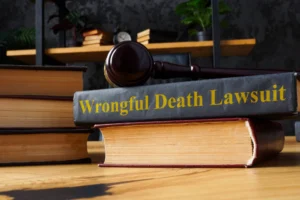Living near or traveling through South Texas means you’re likely familiar with the many U.S. Border Patrol checkpoints that dot highways and roads across the region. Whether you’re a longtime resident, a visitor, or someone just passing through, border checkpoints in Texas can be intimidating even when you’ve done nothing wrong.
If you’re facing questioning, detainment, or even charges related to human smuggling, drug trafficking, or firearms transport at a Texas border checkpoint, it’s essential to understand your rights — and when to contact legal counsel.
At Guzman Law Firm, we specialize in defending individuals charged with federal offenses, including those stemming from border checkpoint encounters. Below, we’ll walk you through the key rights you need to know, what Border Patrol agents can and cannot do, and why having the right defense attorney can make all the difference.
Call us at (956) 516-7198 for a confidential consultation and let us protect your future.
Can you refuse a border patrol checkpoint?
You may not be able to outright refuse a checkpoint stop, but you do have rights — and understanding the difference can help protect you from unlawful searches, unnecessary questioning, and potential violations of your constitutional freedoms.
Border Patrol checkpoints operate under federal authority and are considered “administrative stops” for immigration enforcement purposes. This gives agents the legal right to briefly stop vehicles without a warrant — even if you’re nowhere near the border. In Texas, these checkpoints are often located up to 100 miles from the actual U.S.–Mexico border.
But here’s where your rights come into play:
- You are not required to consent to a search of your vehicle unless agents have probable cause or your consent.
- You can refuse to answer questions unrelated to your immigration status (more on this below).
- You can ask, “Am I being detained?” and “Am I free to go?” — and agents must provide a clear answer.
What you cannot do is physically evade or drive through a checkpoint without stopping. Doing so may escalate the situation and result in criminal charges, including fleeing or obstructing federal officers.
| What to remember: |
| You must stop at a checkpoint when directed, but you don’t have to forfeit your constitutional rights in the process. Staying calm, respectful, and aware of your boundaries is your best strategy. |
Do I have to show my ID at a Border Patrol checkpoint?
This is one of the most commonly misunderstood issues — and one that can lead to confusion and fear, particularly among individuals worried about immigration status or who simply don’t want to engage with federal officers.
U.S. citizens are not legally required to carry identification when traveling within the U.S. However, at immigration checkpoints, Border Patrol agents are allowed to ask about your citizenship status. If you’re a U.S. citizen or lawful permanent resident, a simple verbal confirmation may be enough.
You do not have to show ID unless:
- You’re entering the country from abroad (in which case you’re subject to customs inspection).
- You are under lawful arrest or detention, and agents have probable cause to believe you’ve committed a crime.
However, if you’re a lawful permanent resident, failure to present your Green Card during a checkpoint stop may complicate the encounter. Under federal law, you’re required to have it with you at all times — and not being able to produce it could raise suspicions or delays.
Important caveat: If you’re driving a commercial vehicle — especially near the border — you may be subject to additional identification requirements under transportation or trucking laws.
| What we recommend: |
| If asked to identify yourself, you have the right to remain silent. But refusing to answer may prolong the interaction or lead to further questions. If you’re worried about saying the wrong thing, you can assert your right to remain silent and ask to speak to a lawyer. |
Do I have to answer questions at the border checkpoint?
You have the constitutional right to remain silent — even at a checkpoint.
Border Patrol agents often ask, “Are you a U.S. citizen?” followed by additional questions like “Where are you headed?” or “What’s in your vehicle?” While you must stop at the checkpoint, you do not have to answer anything beyond confirming your citizenship or immigration status.
Here’s a breakdown:
| Scenario | Solution |
| Basic question about citizenship | You can respond or decline politely. There is no law forcing a citizen to answer, but refusing will likely lead to further questioning or even a referral to secondary inspection. |
| Questions about your travel plans, cargo, or passengers | You are not legally required to answer. |
| Questions that imply criminal activity (e.g., transporting drugs or people) | Do not answer. Say, “I’m choosing to remain silent and would like to speak with a lawyer.” |
| Most importantly, avoid lying |
| Providing false information to a federal officer is a federal crime, which can compound your legal troubles. If you’re unsure how to respond, remaining silent is always safer than fabricating an answer. |
Does Border Patrol have the right to stop you?
Yes — but only under certain circumstances.
Under federal law, Border Patrol agents can operate checkpoints within a 100-mile zone from any U.S. land or coastal border. In Texas, this zone covers a significant portion of the state, including major highways such as I-35, U.S. 281, and U.S. 77.
| Agents may… | But they cannot… |
| Stop vehicles at fixed checkpoints to conduct brief immigration inspections. Conduct “roving patrols” and pull over vehicles if they have reasonable suspicion of immigration violations or criminal activity. Search your vehicle only with probable cause, a warrant, or your consent. | Pull you over for no reason outside a checkpoint. Detain you indefinitely. Search your phone or belongings without a legal basis. |
Keep in mind that if Border Patrol has drug-sniffing dogs and they alert to your vehicle, that can provide probable cause for a search. Similarly, if agents see visible contraband or have strong evidence of illegal activity, they may escalate the stop into a search and detainment.
| If you are stopped and searched improperly… |
| It’s critical to document as much as you can and contact a federal defense attorney immediately. |
How long can Border Patrol detain you?
Border Patrol agents are allowed to briefly detain individuals at checkpoints for the purpose of verifying immigration status. However, the U.S. Supreme Court has ruled that these detentions must be limited in time and scope — typically just a few minutes.
If the stop turns into a prolonged investigation without a clear cause, your rights may be violated.
Legally:
- Brief detentions (5 – 10 minutes) are acceptable for immigration questioning.
- Extended detentions require probable cause or reasonable suspicion.
- Searches or arrests require probable cause or a warrant.
There is no exact time limit written into law, but courts have generally ruled that once the initial purpose of the stop has been fulfilled, agents must either release you or escalate with valid legal grounds. If agents continue to hold you without explanation, you have the right to ask:
- “Am I being detained?”
- “Am I under arrest?”
- “Am I free to go?”
| If you are not free to go… |
| Ask to speak to a lawyer and remain silent. Anything you say can be used against you in a federal investigation — especially in drug, firearm, or human smuggling cases, which are aggressively prosecuted in Texas border districts. |
Why legal representation at border checkpoints in Texas is crucial
Checkpoint encounters might seem routine — until they aren’t. Many federal cases begin with what looks like a simple stop: a driver nervous to answer questions, a dog alerting to luggage, or a misunderstood situation that escalates quickly.
Guzman Law Firm represents individuals who have been detained, searched, or charged as a result of stops at border checkpoints in Texas. These often include allegations of:
- Human smuggling or transporting undocumented individuals
- Possession or transportation of controlled substances
- Illegal weapons possession or firearms trafficking
- Conspiracy or aiding and abetting federal crimes
The stakes are high. Federal charges carry severe penalties, including mandatory minimum sentences and large fines. Speaking to investigators without an attorney present can compromise your defense before it even begins.
We understand how to challenge unlawful searches, contest the legality of checkpoint procedures, and protect your constitutional rights throughout the federal legal process. Whether you were charged directly or caught up in someone else’s investigation, we can help you build a strategic defense.
Call Guzman Law Firm today at (956) 516-7198 to request a confidential consultation.
More Helpful Articles by Guzman Law Firm:
- What to Know about Federal Conspiracy Charges
- What Is Probable Cause in a Search for Drugs or Firearms?
- Who Is Liable in a Multi-Vehicle Accident in Texas?
- How Texas Law Handles Uninsured Drivers in Car Accidents
- What Are the Consequences of Missing a Court Date in Texas?





